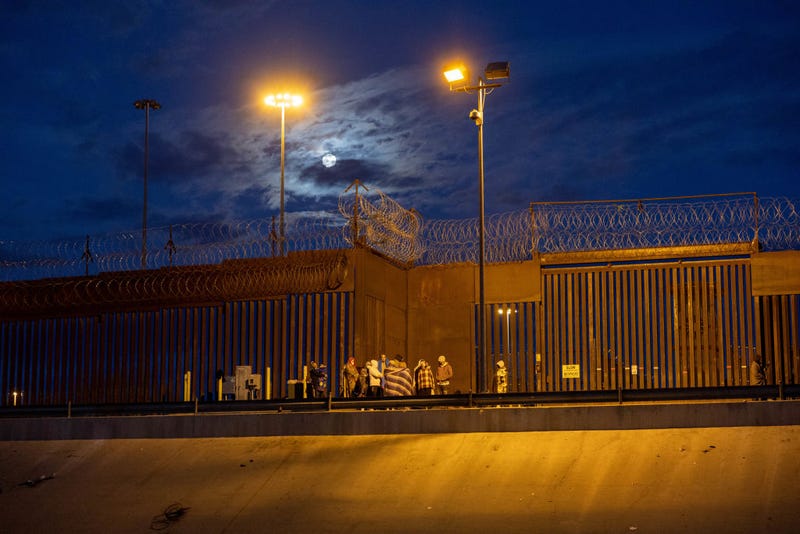
President Joe Biden made his first trip to the United States border with Mexico, arriving on Sunday at a US Customs and Border Patrol site, but what does this mean for immigration?
Not everyone was in support of Biden’s trip, despite the constant call for him to travel to Texas and see the crisis first hand. Now, many of his political opponents have said his trip was too late.
This included Texas Gov. Greg Abbott, who said on Sunday that Biden was “two years and about $20 billion too late.”
Veena Iyer, the executive director of the Immigrant Law Center of Minnesota, joined News Talk 830 WCCO’s Jordana Green and Adama Cart to talk about the president’s trip, his recent policy announcements, and what it could mean for the country.
Iyer shared that US law currently requires anyone who arrives in the country to apply for asylum if they fear persecution, regardless of the circumstances of their arrival.
She says that recent policies enacted by Biden are in direct “violation of US law.”
The Biden administration policy that Iyer is discussing is the expansion of Title 42, which will expel most asylum seekers at the US border, including those from countries other than Mexico who are fleeing persecution and looking for a way into the country.
“The people who are, frankly, the most desperate, who would seek persecution if they even tried to get a passport in their home country, are the ones who aren’t going to be able to seek asylum under President Biden’s proposed policy,” Iyer said.
She did praise some of Biden’s actions, including a policy that will have the US accept as many as 30,000 migrants per month from Cuba, Haiti, Nicaragua, and Venezuela, being that they can use the application system being set up from their home countries first. They must also have a US sponsor and be able to travel by plane if approved.
As for former President Trump’s COVID-time Title 42 policy that Biden is expanding, Iyer said that as the law is being used now, “it is not legal from our perspective.”
Currently, Title 42 is being fought in court after briefly being struck down before it was upheld and reinstated by the Supreme Court, while justices prepare to hear arguments on the law starting on March 1, according to Fox News.
“It’s supposed to be for a public health emergency, and certainly, there are issues with COVID still, but at the border, there is no reason for it,” Iyer said.
With many arguing that the pandemic is still at play and Title 42 should be as well, Iyer said that both sides have reasoning either in support or against it, hence why it has wound up at the Supreme Court. Either way, Iyer says she sees it being struck down when all is said and done.
Immigration continues to be a top issue for Americans, and Iyer shared that the “system is broken.”
“It’s an old system. It’s a system that the bones of it were built in the 1960s,” Iyer said, adding that there are a couple of “big things” needing to change.
One of the big things Iyer mentioned is a pathway to citizenship for undocumented immigrants already in the country. She also noted that this is something vast majorities of Americans already support.
Another change that Iyer said should happen is reforming the employment-based immigration system, which is currently built for a 1960s economy, not for the one we have today.
“We just need to get back to the table to say, ‘What actually works for our country?’” Iyer said, not what makes good “sound bites.”


